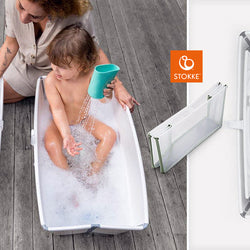Getting Children Ready for Kindergarten Without Anxiety
Learn through play and don’t worry about mastery.

by Jeff & Annie Wiesman
Dec 03, 2016
With the ever-changing national and state standards in education, and especially now with the associated complications with the Common Core Standards (whether the difficulties are perceived or real), many parents get anxious about how to get their children ready for kindergarten.
There is good news: regardless of the current trends or standards in education, parents have an important role in their children’s development and future education.
There are many tangible, easy, and practical things you can do very early in your little one’s life.
As a former kindergarten teacher and a teacher of elementary school educators, we must stress two very important points before offering specific strategies.
Article Continues Below Advertisement
First, all teaching opportunities work best when they occur in an informal setting where learning is seamlessly connected with play. In other words, when we teach our toddler numbers, letters, shapes, or other concepts, she is having fun. We aren’t sitting at a desk offering formal instruction in a structured setting, but instead, we are playing with blocks, puzzles, sidewalk chalk, and other fun manipulatives that engage and entertain her.
Second, many of the strategies should be considered introductory experiences if your children are younger than kindergarten age. Do not feel the need to teach for mastery.
Instead, simply begin to expose your kids to ideas and concepts. With time and repetition, they will develop mastery whenever they are developmentally ready. Don’t get anxious if your toddler isn’t “getting it” when introducing, exploring, and discussing concepts.
The Common Core currently has two main emphases: math and literacy. First, strive to develop a joy of math and familiarize your little one to numbers and geometric shapes. Look for our upcoming article that includes four practical things you can do to help your toddler develop early math proficiencies.
Article Continues Below Advertisement
Check out this link to read about four practical things you can do to help your toddler develop early math proficiencies.
Probably the most common advice given to parents to help with literacy development is to read to your infant and toddler every day. Another forthcoming article will discuss the benefits of reading to your child and incorporate some step-by-step ideas.
Click here to understand more about the benefits of reading to your child and to learn some step-by-step ideas.
Early competencies in math and literacy are important, but that is only part of the story.
Article Continues Below Advertisement
Early competencies in math and literacy are important, but that is only part of the story. Early elementary school teachers repeatedly stress the significance of developing positive behaviors and dispositions in young children. This link provides advice on how to create an attitude of learning and a proper mindset.
In addition, parents and teachers must always be mindful of developmental concerns. All kids learn at different rates and this article helps you to navigate this issue and think about how your toddler’s development relates with the culture of your home.
The ideas included in the linked articles offer strategies that will build a solid educational and developmental foundation so that your toddler will be ready for kindergarten.
For more advice on how to get your Children ready for Kindergarten, you can read these articles:
Article Continues Below Advertisement
- 4 Ways to Develop Your Toddler's Preschool Math Skills
- How Young Is Too Young to Teach Your Child to Read?
- 3 Soft Skills & Attitudes to Foster in Your Preschooler
- 2 Foundational Keys to Child Development
Jeff & Annie Wiesman
Dr. Jeff & Annie Wiesman are coauthors of “Education Begins at Birth: A Parent’s Guide to Preparing Infants, Toddlers, and Preschoolers for Kindergarten.” Jeff is an associate professor of education who mentors future elementary school teachers, and Annie has numerous years of experience teaching preschool, kindergarten, and first grade. They reside in New York with their five-year-old daughter.










